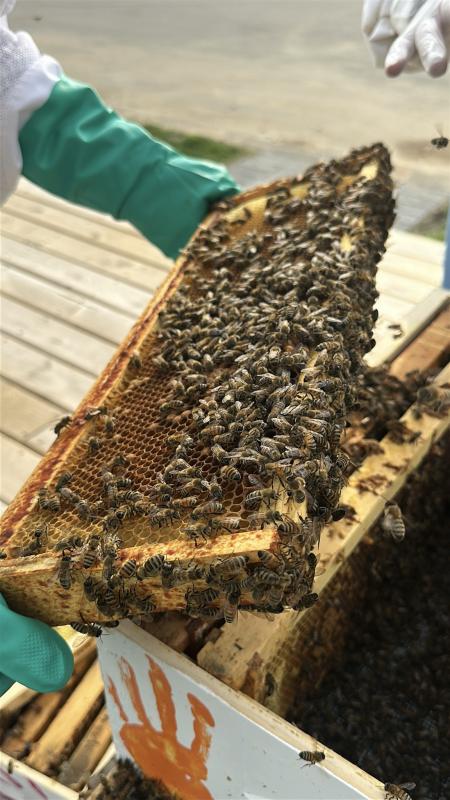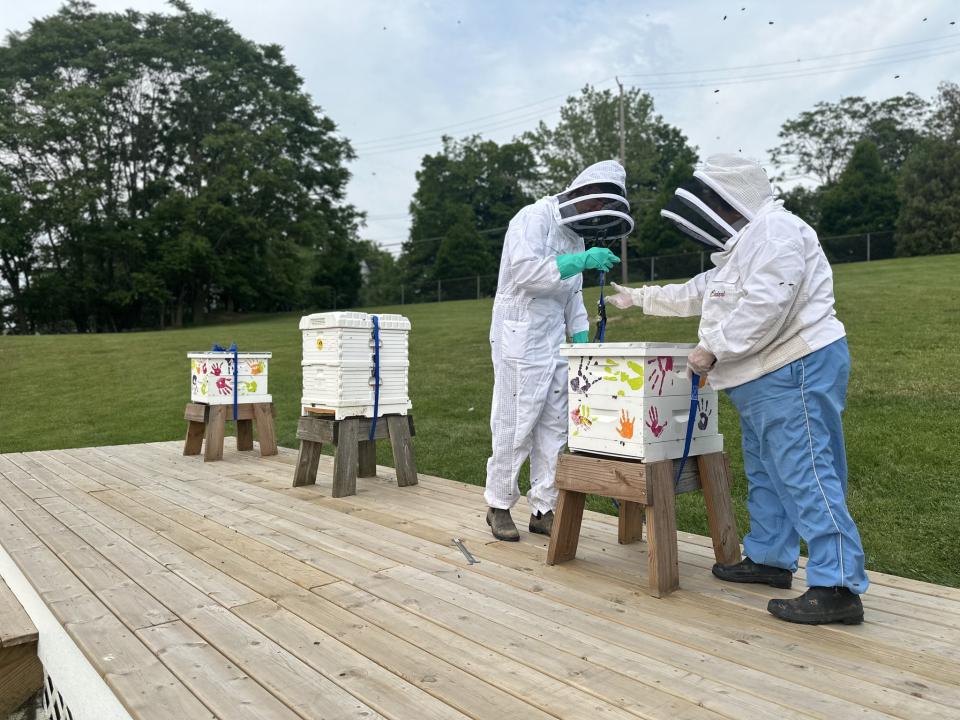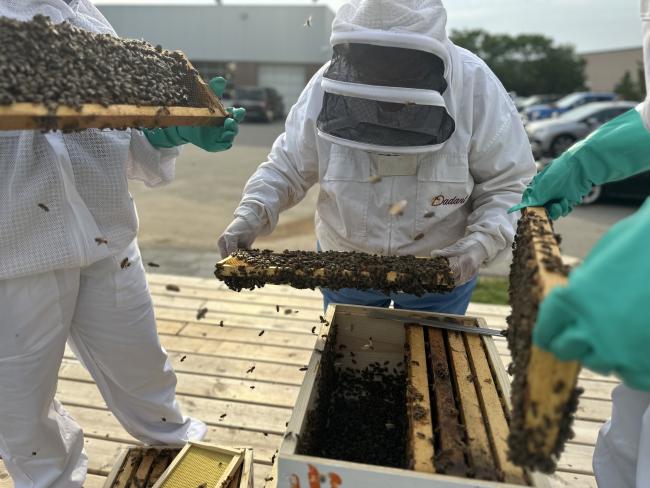July 31, 2025
Did you know that one out of every three bites of food relies on pollinators? While they’re not the only ones, honeybees are among the most efficient of the pollinators. But with honeybee populations in steep decline, the need to protect them is more urgent than ever.
Grand Rapid’s Community College (GRCC) is taking action. As part of its ongoing sustainability efforts, GRCC has introduced a new apiary at its Leslie M. Tassell MTEC campus, led by Secchia Institute for Culinary Education professor and bee hobbyist Audrey Heckwolf.
“The opportunity for this project is really exciting,” said Heckwolf. “We’re partnering with the Grand Rapids Area Bee Club and hope to begin hosting the club meetings on the GRCC campus in the future. By bringing the meetings to campus, we open up accessibility to everyone while also providing a place for continued education about our pollinators. We want to strengthen our connection to the natural world.”
Heckwolf stresses the importance of making education tangible for all ages, ranging from preschoolers to faculty.
“As a hobbyist bee keeper, I do a lot of bee education,” she said. “Some people become nervous around bees. I held a Q&A session with faculty at the MTEC building, where the apiary is housed. Afterward, I had one participant send me this wonderful email. She was a person who would run or swat at the bees. She sent a video of a bee she let land on her. She wasn’t fearful at all. It was amazing for her to watch the bee crawl around on her, feeling a sense of trust between them. Honeybees don’t usually harm a person unless they feel threatened. The video shows the impact education can have. I am so excited to have this apiary at GRCC for so many more people to engage.”

GRCC’s Strategic Plan calls on the college to “foster a culture of environmental responsibility to reduce [its] ecological footprint.” The apiary directly supports this priority by encouraging sustainable practices and environmental education across the campus community.
“Bees were one of those opportunities that helped us get outside of the box when it came to what we were already doing,” Heckwolf said. “We have systems in place for recycling and being efficient in our energy use. We wanted to do something more.”
Already active in the Grand Rapids Area Bee Club, Heckwolf recognized the potential to use the apiary as a bridge between GRCC and the greater Grand Rapids community. Her goal is to grow the program into an immersive learning experience.
“I’m working on a plan to have days where small groups come out to the hives,” she said. “They’ll be able to suit up, look at the hives and learn about them, like a living classroom. Eventually, as the program unfolds, I’m looking to have bee-keeping classes as well.”
With deep ties to both education and the culinary world, Heckwolf knows that understanding where food comes from is vital. The apiary gives students a hands-on opportunity to work collaboratively supporting pollinator health while building awareness about food systems and sustainability.
Small, local collections consisting of 2-3 hives each make up about 90% of the beekeeping sector. While commercial beekeepers manage large-scale crop pollination, it’s the hobbyists who are truly leading the movement to restore bee populations. That spirit of grassroots collaboration reflects the very nature of the honeybee and the values of GRCC.
GRCC faculty members interested in getting involved with the apiary project are encouraged to contact Professor Audrey Heckwolf. The education-based approach of the project means no prior bee knowledge is necessary. All you need is to “bee” present and willing to learn.
Get the latest "buzz" on the Bee Apiary
This story was reported by Anjula Caldwell

